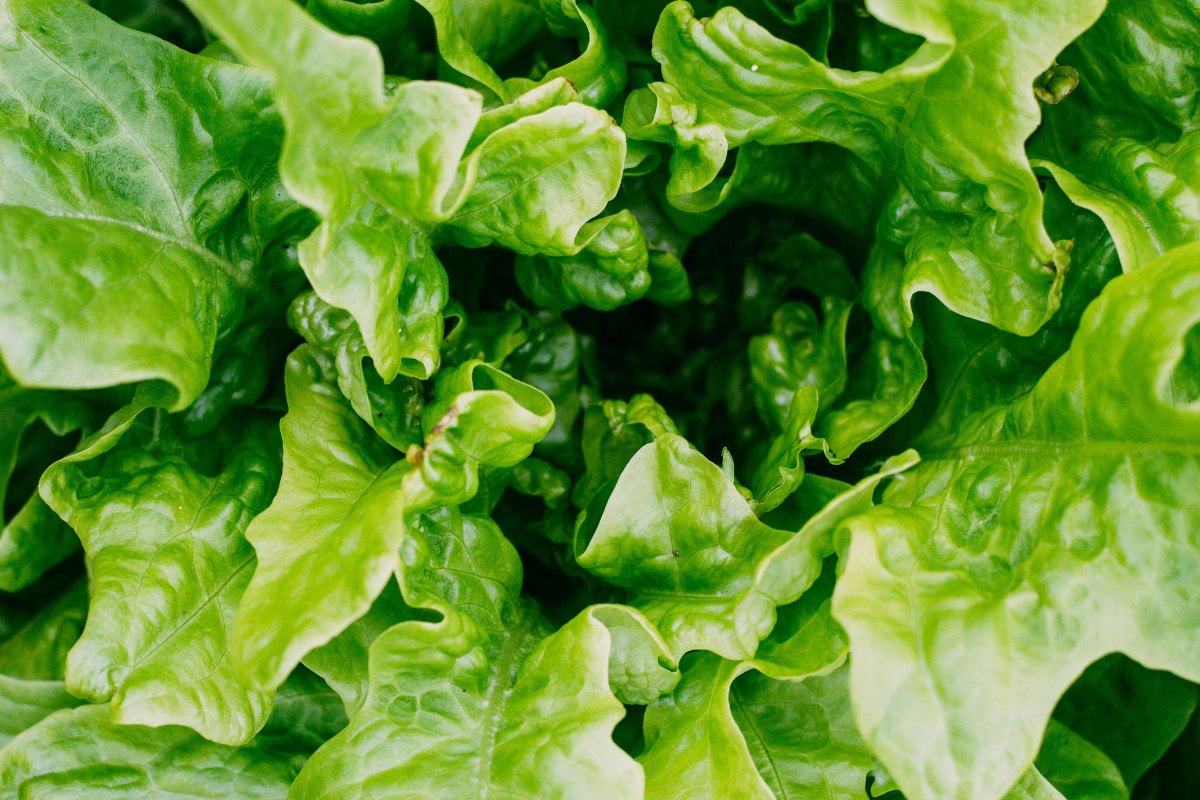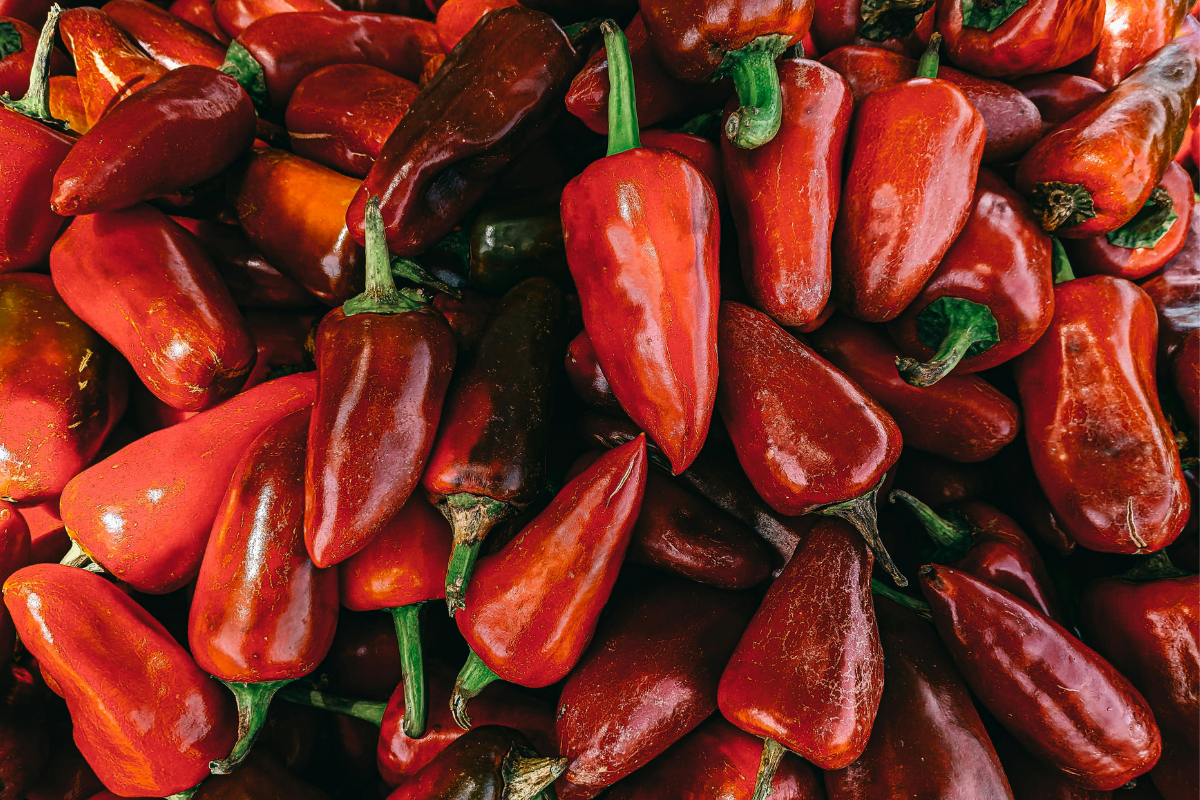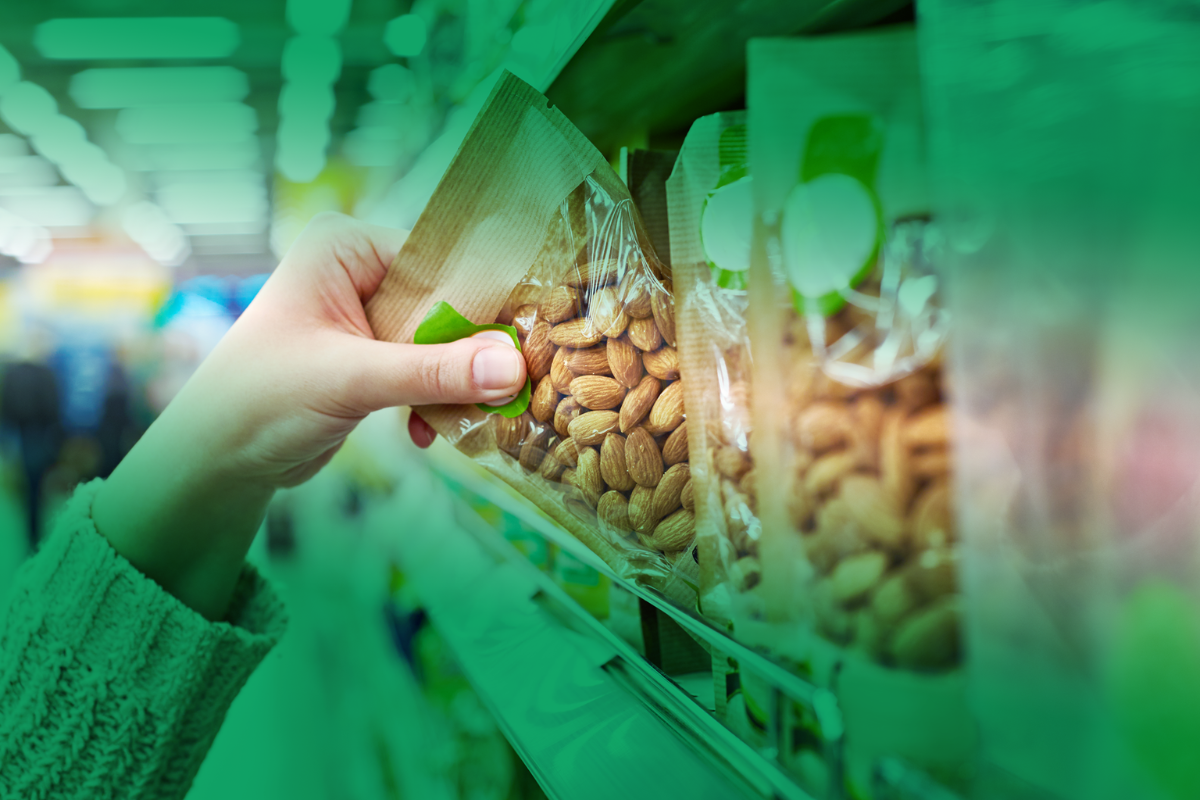Nico Muzi
28
November
2023
Just six food retailers stand to transform the environmental impacts of food sales by offering more plant-based proteins, a new report by research consultancy Profundo commissioned by environmental group Madre Brava shows.
The report estimated that a 50% shift from meat to plant proteins – including a combination of whole vegetal foods and alternative proteins – by some of the world’s biggest supermarket giants and food service companies would have enormous climate, land use, and water benefits. If food retailers Ahold Delhaize (headquartered in the Netherlands), Carrefour (France), CP All (Thailand), Lidl (Schwarz Group, Germany), Tesco (United Kingdom) and the world's second largest food service company Sodexo (France) achieved 50% plant-based sales by 2030, they would reduce greenhouse gas emissions by 31.6 million tonnes per year [1]. This is equivalent to removing more than 25 million cars from EU roads.

Moreover, the 50% switch from meat to plant proteins could free up an area of land the size of Hungary (102,000 sq km). It would also save 670 million cubic meters of water, equivalent to 268,000 Olympic-size swimming pools worth of water a year.
“Just six food retailers can have an outsized impact on the climate, nature, water and their own bottom line by shifting to 50% plant proteins by 2030,” said Nico Muzi, managing director of Madre Brava. “While some of these supermarkets have already set modest targets to increase the share of plant proteins in their overall protein sales, we need more ambition and more leaders to tackle the climate emergency. Thus, we urge leading food retailers Ahold Delhaize, Carrefour, CP All, Lidl, Sodexo and Tesco to commit at COP 28 to achieve a protein portfolio with at least 50% plant proteins by 2030.”
Supermarkets and food service companies walking the walk of the protein transition
Food retailers in Europe are starting to set targets to increase the share of plant-based proteins and decrease the share of animal-based products in their overall protein portfolio. The overall aim is to support consumers in their pursuit of balanced diets in line with the ‘planetary health diet’ recommended by leading scientists and nutritionists at EAT-Lancet.
In March 2022, Albert Heijn, Ahold Delhaize’s supermarket brand in The Netherlands, committed to achieving a 60% plant-based protein share of all protein sales by 2030 [2]. Later in the year, Lidl Netherlands followed suit, setting a 50% plant-based protein share goal. In the food service and catering sector, the world’s largest food service company, Compass Group, pledged to swap 40% of their meat-based meals for plant-based alternatives by 2030 in the UK and Ireland.
Last month, Lidl Germany committed to almost double to 20% the share of plant-based protein in in their meat, egg, fish and dairy product categories by 2030. As importantly, the German discount supermarket lowered the price of plant-based meat and milk alternatives to match the price of conventional animal-based products to help consumers transition to plant-based diets. On average, this move represented a drop in price of 20% for Lidl’s Vemondo brand of plant-based products. Research shows price parity is critical for mainstream adoption of plant-based protein products.
This series of corporate pledges on the protein transition is the result of two key trends: rising consumer demand for plant proteins as a growing cohort of consumers want to reduce their meat intake, and corporations’ own sustainability and Environmental, Social and Governance (ESG) goals.
According to a McKinsey analysis of 40 of the biggest supermarkets in the world, 93% of their emissions are ‘scope 3’. These are indirect emissions outside of supermarkets’ direct control, which originate from, for example, agriculture, food processing, waste, and transport upstream. As the McKinsey report states: “One of the biggest challenges in decarbonizing grocery is the key role dairy and meat play in the Western diet, as these products account for almost half of all product-related scope 3 emissions.”
Meat consumption is going down in Europe as more meat eaters become flexitarians
Meat consumption in Northern Europe is decreasing, especially in countries with cheaper plant-based meat alternatives. German per capita meat consumption has been steadily declining since 2018, hitting a record low since reporting began in 1989. Germany has the second smallest price gap between plant-based and conventional meat in Europe, according to Sentient Media. Meat consumption is also going down in The Netherlands, where most plant-based meat products are cheaper than regular meat, according to ProVeg.

One key driver of this consumer trend is the rise of flexitarians, consumers actively looking to reduce their meat consumption. The latest European consumer poll by the University of Copenhagen, Ghent University and ProVeg published this month showed that more than half of Europeans reported to be eating less meat – up from 46% in 2021. Health is the main factor influencing the decision to reduce the meat intake (47%).
In contrast with the US, two-thirds of Europeans who consume plant-based products regularly do it at home. And they primarily buy these plant-based products in supermarkets (60%).
Plant protein production, in general, uses a tiny fraction of land compared to animal meat production, thus drastically reducing deforestation and protecting biodiversity. Moreover, plant protein production uses a lot less water, causes less water and air pollution, eliminates the risks of antibiotic resistance and zoonotic pandemics and lowers public health burdens associated with red meat consumption [3].
- A combination of domestic meat consumption in countries of operation, country-level company market shares and the retail sector's role as sales channel for meat was used to assign meat volumes to the selected actors. It was considered that on average, the share of meat sold through retailers is lower than that of food in general as out-of-home consumption of meat tends to be higher. While the resulting volumes may over- or underestimate the actual sales, this method is the most feasible approach given the lack of first-hand data.
- Other key supermarket brands in the Ahold Delhaize group such as Stop & Shop and Giant in the US or Delhaize in Belgium have yet to set plant protein sales targets.
- WATER QUALITY: Interfaith Center on Corporate Responsibility (2022), 'Factory Farms and Water Pollution,' [Online].
- ANTIBIOTIC USE Van Boeckel et al. (2017), 'Reducing Antimicrobial Use in Food Animals,' Science, v.357 (6358).
- PANDEMIC RISKS Humane Society International (2020), 'The Connection between Animal Agriculture, Viral Zoonoses and Global Pandemics' (Washington DC: HSI). [Online] Available at: [https://blog.humanesociety.org/wp-content/uploads/2020/10/Animal-agriculture-viral-disease-and-pandemics-FINAL-4.pdf]. Tollefson, J. (2020), 'Why Deforestation and Extinctions Make Pandemics More Likely,' Nature, 7th August 2020. [Online] Available at: [https://www.nature.com/articles/d41586-020-02341-1].
- PUBLIC HEALTH BENEFITS OF TRANSITION Popkin, B. et al (2012), 'Global Nutrition Transition and the Pandemic of Obesity in Developing Countries,' Nutrition Review, v. 70(1), pp.3-21. Froggatt, A. and Wellesley, L (2019), 'Meat Analogues: Considerations for the EU,' (London: Chatham House).



